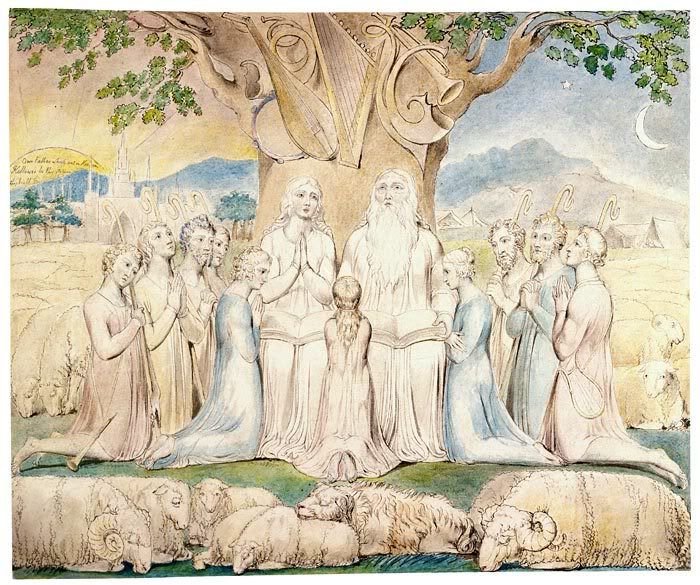In Blake's watercolors
 |
During my recent trip to New York City, I made a point of seeing William Blake's illustrations for The Book of Job at the Morgan Library. These are delicate, lovely watercolors which are nothing like the emptiness some would like to give that book. Perhaps that is the testament in Blake's watercolors, that Job's story is indeed one of beauty and redemption.
I have had many arguments about Job and his relationship to God. It is one of the most intriguing books in the Bible - more obscure and annoying (if I can say that of biblical stories) than the one about David's adultery and murder-by-proxy. Non-believers or quasi-believers, often rational and clever thinkers, will ultimately say that God was wrong. Of course, we as humans can question God's actions, and the hurt and anguish we suffer at times as His children. But, saying God is wrong is the easy way out. And that view ultimately helps these nominal/non Christians in their quest to distance themselves from God.
As I thought more about it, perhaps Job is the quintessential tale of our times. Every time I talk to a nominal (liberal?) Christian about some error I see in his approach to God's Word - not that I'm an expert, but there are a few times when I don't shirk criticizing - he is astonished at my criticism and says that he is a good person trying to do good things. Isn't that what Job was saying? But, of course being a biblical character, he seemed to understand this, and tried to correct whatever errors he thought he saw in his actions.
There are many phrases in the Bible that we can transform into our own self-serving sanctimonious interpretations: "love thy neighbour," "all things work together for good," "turn the other cheek." The piety can be endless. I think the final meaning in Job is to leave our relations with God in His hands, however obscure and paradoxical that may seem at times. Our freedom, and our ultimate joy, comes from this relinquishing. Even the too-holy can get condemned. That is the mystery of God.
Job found favor back with God. He accepted that favor. There are many these days whose disappointment and stubbornness alienate them further away God, who refuse to see the redemptive path in front of them, and who will forever say: "I was such a good person. Why has God forsaken me?"
Besides universalistic interpretations, there is as always a specific and historical context to all biblical stories, and surely with this story as well. I wonder what is the significance of having Job’s story at that particular time in the Bible. Was it then that men started to consider themselves on par with God and that they started taking themselves too seriously, thus undermining God? Is that the punishment God had to mete out in order for man (Job) to resume his reverence for God? What would (will) God do in our modern times? Just some points to ponder upon.














